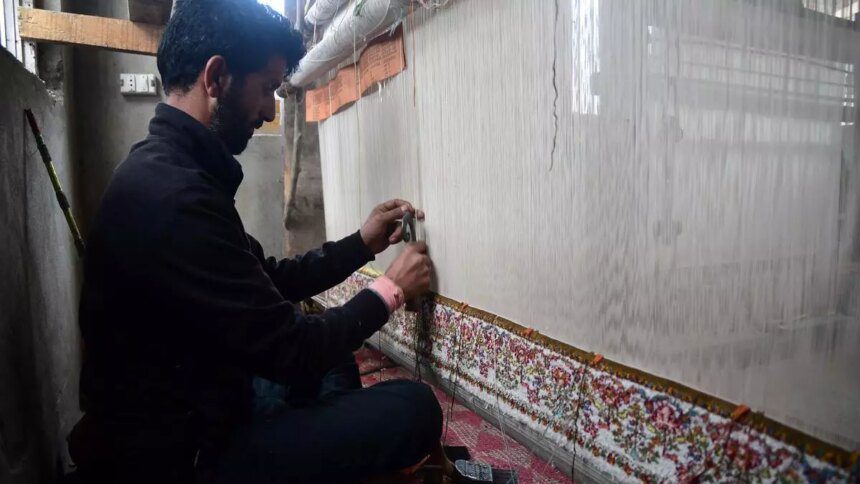Kashmir’s handicraft and handloom sector has reported exports totaling ₹2,567 crore over the last two fiscal years, with expectations to reach ₹3,000 crore by the end of the current fiscal year in March 2025. Officials highlighted that this impressive export figure includes data from the first three quarters of the ongoing fiscal year (2024-25).
However, exports in the current year have been adversely affected by ongoing global conflicts. According to the Handicrafts and Handloom Department, significant contributions to this export total came from Kani and Sozni shawls, valued at ₹1,105 crore, along with hand-knotted carpets, which accounted for ₹728 crore in the past three years. Other notable exports include crewel, papier mâché, chain stitch, and wood carving products.
To support the export of handmade products from Kashmir, the department has introduced a subsidy scheme that offers a 10% incentive on the total value of handloom and handicraft exports, with a maximum reimbursement of ₹5 crore for eligible exporters registered with the department.
The government has also emphasized its commitment to the welfare of local artisans through various initiatives. A ‘Design Studio’ at the Indian Institute of Carpet Technology provides contemporary designs and packaging models to enhance the marketability of products. Flagship schemes aimed at artisan welfare include the Credit Card Scheme, Mudra, Financial Assistance Scheme for Co-operatives, Karkhandar Scheme, and Education Scholarships for the children of craftsmen.
Under the National Wool Policy, the department has allocated ₹43.70 lakh for the distribution of modified steel carpet looms to 100 weavers in Kashmir and plans to distribute an additional 250 looms in the upcoming fiscal year.
The officials are also focused on combating counterfeit products by enhancing testing and QR coding of Geographical Indication (GI) registered crafts. The department has bolstered manpower and resources at its Pashmina Testing and Quality Certification Centre (PTQCC) and the IICT lab dedicated to carpet testing. Recently, the waitlist for six craft products—including Sozni, Kani, Walnut Wood Carving, Khatamband, Papier Mache, and Kashmir Pashmina—was reduced from 1,700 to 671 due to increased staffing.
To further improve testing and certification efficiency, proposals have been submitted to the Union Ministry of Textiles for additional equipment, such as a Scanning Electron Microscope and a Digital Microscope.
In a concerted effort to empower women artisans, the department has successfully trained 17,182 women across 432 Elementary and Advanced Training Centres over the past four years, disbursing a total of ₹36.27 crore in stipends to the trainees.










